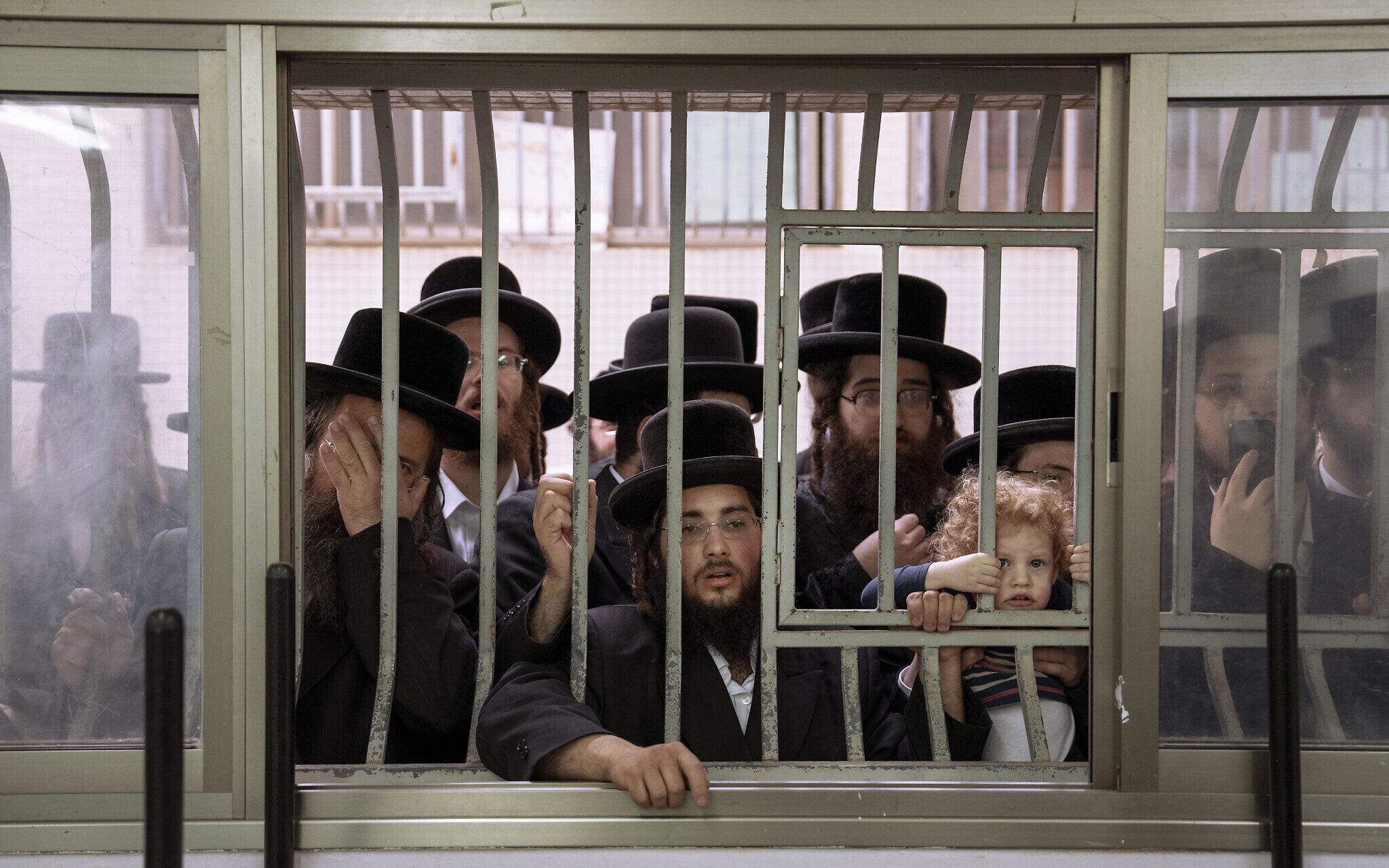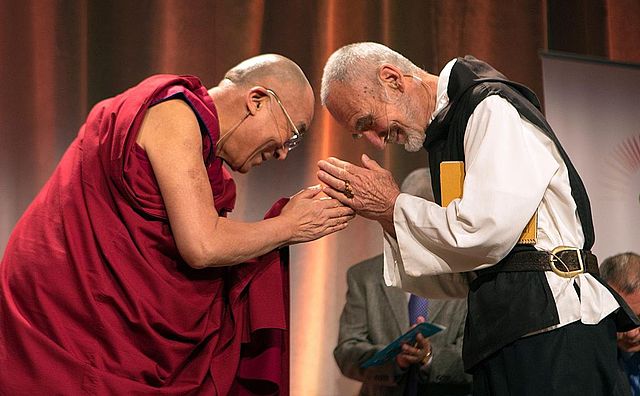The behaviour of Chareidi (more commonly known as “Ultra-Orthodox”) flight passengers has hit international news a few times, mostly around them not wanting to sit next to women who have at times been asked to switch seats, something El Al is being sued over. There have been some other stories too, eg. Chareidi men who have smashed a flight screen showing an “immodest” movie or flying in plastic bags (such as the ones pictured) which protect their Kohanic selves from the ritual impurity of flying over a cemetery (more info here).

The issue of El Al and segregated seating is one of the rare sexism stories in the news where at least to me it’s not 100% obvious what the law/public policy should be. Which is why I thought it worth bashing some thoughts out. But first, two ground rules.
I don’t think it’s worth turning this into a theological discussion. To me, Chareidi Judaism is not “more wrong” than any other branch; just more harmful. I don’t think anyone has ever made a case for why their branch (or any other) is better or worse. I’ve seen a lot of pushback on the segregated seating such as “that’s not real Judaism,” “there is no halakhic requirement here” or even “Moshe Feinstein ruled that a man can sit next to a woman on public transport”. To me this is a giant herring. For more info, see a previous discussion about whether ISIS are Muslim.
The other thing to keep in mind is language. The term commonly used in mainstream media (“Ultra-Orthodox”) implies a linear scale of observance with them on some far end. The reality’s not that simplistic,which is why I use “Chareidi”. Also many people (Jewish and non-Jewish) are perfectly with using dehumanising language about Chareidim. To the point of describing them as vermin, “them” as outbreeding “us” and other bits of fascist eugenics. With no self-awareness of the contextual history of anti-Semitism to boot. If you do this you’re lower than low; but it’s even more important to keep in mind the more appalling you think the sexist behaviour on the plane is. I think (maybe controversially) that we shouldn’t be dehumanising members of ISIS or any other extremist group, but that’s for another time.

There main reasons why a passenger might want to change their flight seat are:
- Wanting to sit next to travelling companions they weren’t able to sit next to
- Wanting a better seat (if free)
- Convenience, mobility etc.
- Getting away from “legitimate” sources of disturbance (eg. screaming kids, someone coughing profusely)
I think most of us would be ok with flight attendants actively trying to accommodate seat changes for the above reasons, if possible. Note that even when someone is trying to change seats for “legitimate” reasons they might still be a horrible human being about it. Examples include misogynistic abuse of a mother for not having “control” of her screaming kids, dehumanising language about a fat person etc.
A man who sincerely claims his religious beliefs preclude him from sitting next to a woman is different. We generally (and justly) consider this an illegitimate request, and it’s not just for the symbolic reasons but because of practical utilitarianism. This request intrinsically humiliates and harms a person in a way that the others don’t. This is the reason Renee Rabinowitz is giving for her El Al lawsuit. The question is then: how should airlines deal with passengers who express bigoted, intrinsically-humiliating requests?
The answer should depend on whether this comes up on the actual plane or during the booking process.
On the actual plane, the staff must ensure the flight takes off on time and they already have a tough job juggling lots of (potentially competing) requirements. There’s an interesting op-ed on seating segregation from the perspective of El Al flight attendants. That article doesn’t make me sympathetic to staff who want to accommodate seat switches. What would happen if these two passengers wanted to be moved?
- A secular man wanting to be moved because he hates women.
- A Chareidi man wanting to be moved away from a black man, giving a religious reason.
Hopefully you’ll agree that these people’s request shouldn’t be honoured and if anything the flight attendant should not allow a swap to happen (in case of a passenger exerting private pressure on another).
The first example shows how much undeserved privilege we still give religion: the secular case stands out as so obviously discriminatory. The fact that bigotry stems from religious beliefs doesn’t make it better and doesn’t undo the request’s dehumanisation. The second example suggests that we tend to be more comfortable with [overt] sexist than [overt] racial discrimination. No reason to treat the cases in the news differently.
Now the person being discriminated against may well not wish to remain sitting next to the bigot. If anything it’s they who should get the option of moving if a better seat is available. In that way the urban legend of the racist airline passenger that you’ve probably read has a good point. Despite being snooty and self-congratulatory.
If the plane is full, the two people would have to stay put in which case the bigot had better be civil. Otherwise in all three cases the just response would be for the bigot to be put on a blacklist disallowing them from flying with the airline again. Passengers should not be allowed to poison the atmosphere, especially not on something as long and confined as a flight.
What about before the flight takes off? After all, airlines operate in a capitalistic reality and it’s disingenuous to expect any particular airline (or even airlines as a whole) to turn down the business of bigots altogether when they’re in the profits business. Also the booking process makes religious accommodations all the time, eg. Kosher/Halal/Hindu/Jain meals. The disingenuous argument would be that El Al should similarly be able to incorporate a preference for same-sex neighbours in the booking process (also because nobody specific is humiliated). But it would still poison a space that despite being operated by a private company is culturally public. Companies should not be explicitly catering to bigotry in their booking systems even within a capitalist reality. If this isn’t illegal, it should be.
On the other hand, this Change.org petition offers a few suggestions that seem like an ok compromise between keeping the space non-toxic and providing a service to as many people as possible. The “bigots only” reserved area suffers from the same problem as a booking process preference but I think charter planes and group bookings through travel agents are sufficiently removed from the airline to not be as bad. After all, airlines generally encourage those bookings without enquiring to deeply if (say) a group booking for 30 white people is so homogenous because they’re white supremacists. Even if they are, the airlines would let them fly, as long as they behave on the plane. And that’s probably fine. I think we’ve found the long-awaited compromise.
The fact that this happens regularly shows how many Chareidi men are used to having their sex-segregation desires catered to in all aspects of their lives. It’s then not a huge leap for them to think that it’s reasonable for them to try dictate the same on a plane — after all they’re only asking the flight attendant! This shows how important the general social norms are. It’s no coincidence Feinstein’s ruling that “allows” Orthodox people to use mixed public transport came from a Rabbi who lived in New York for decades and was used to secular public space. I’m not sure he’d have come to the same conclusion if he lived in Israel with his every religious whim catered to. No matter how much fundamentalists claim to have religious practice “untainted” by the outer world, that’s bullshit. We accept more bigotry when a religious reason is given and that’s what really needs to stop.





0 Comments